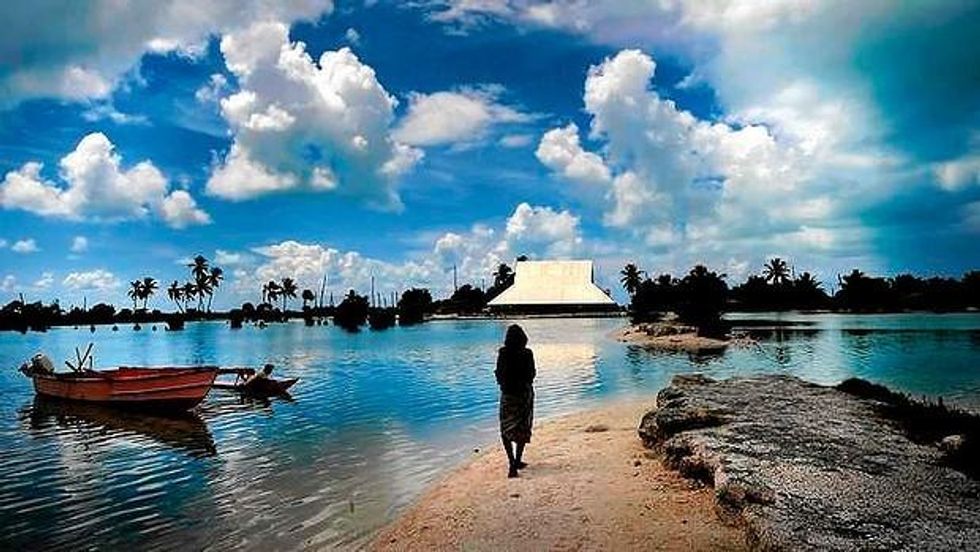A 37-year-old man is petitioning the government of
New Zealand to grant him, and by extension his
children, asylum as the world's first legally recognized climate refugee.
The case is of international significance, as global warming is already forcing tens of millions of people across the world to flee their homes.
This week, New Zealand resident Ioane Teitiota appealed the decision of the country's immigration courts to deport him to Kiribati, on the grounds that forced relocation to this South Pacific nation--where safe water, agricultural food supply, and ultimately human survival are under threat--would violate his human rights.
The media is reporting that Teitiota, who was born in Kiribati, moved to New Zealand six years ago where they had three children.
Kiribati is the lowest sea-level nation in the world consisting of 33 islands that scientists warn are poised to be some of the hardest-hit by climate change. Even the nation's president has urged its 100,000 citizens to leave, The Telegraph reports. The government of Kiribati recently moved forward to buy land from Fiji in case global warming forces mass relocation of its citizens, the BBC reports.
"Fresh water is a basic human right... the Kiribati government is unable, and perhaps unwilling, to guarantee these things because it's completely beyond their control," Teitiota's lawyer Michael Kitt told Radio New Zealand.
Immigration authorities had previously refused Teitiota asylum on the grounds that he is not officially recognized as a refugee because no one is threatening his life on Kiribati. Kitt countered that the environment would threaten the life of Teitiota and his children, who would be deported with him.
"There's no future for us when we go back to Kiribati," Teitiota told a tribunal, The Telegraph reports. "Especially for my children. There's nothing for us there."
While Teitiota would be the first official climate refugee if his bid is successful, he would not be the first person forced to flee or seek asylum--legally recognized or not--as a direct result of global warming.
According to the International Displacement Monitoring Center and Norwegian Refugee Council, over 32 million people across the world fled their homelands last year due to severe weather events--98 percent of which were due to climate change. Africa and Asia were the hardest hit, but so-called developed nations were also severely impacted by such displacement, including the United States.
_____________________



